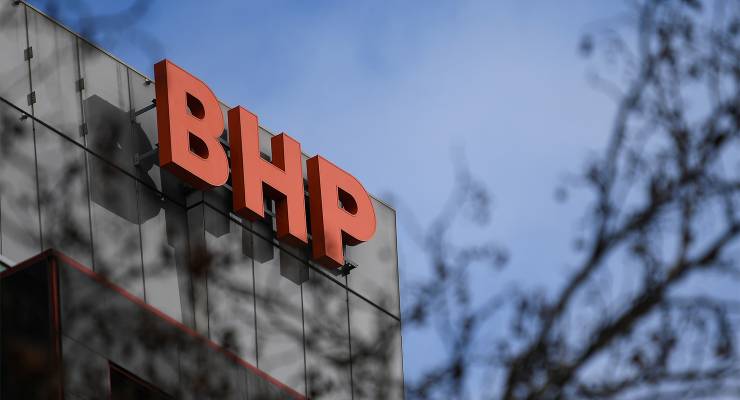
Unexpectedly, BHP has produced the strongest case yet for why the government’s proposals to end the exploitation of contract workers are worth supporting.
The mining giant, which relies heavily on contracting out to labour-hire firms that pay workers much less than BHP’s permanent staff, has told The Australian Financial Review that the government’s laws to equalise pay for the same job would take $1.3 billion from shareholders.
“This will have a direct impact to our shareholders,” lamented CFO David Lamont. “$1.3 billion will come directly off our earnings each year that will then flow directly to dividends; we estimate that to be about 30 cents on a dividend payout.”
So according to BHP, the laws would transfer $1.3 billion “directly” from wealthy and institutional shareholders and superfunds to underpaid workers. Indeed, Lamont said, the $1.3 billion might be an underestimate.
After a decade of wage stagnation and two years of real wage falls, that should be welcome news for workers in the mining industry. That industry had the second-lowest level of wage growth in the entire economy in the decade to June this year, the Australia Bureau of Statistics’ private sector wage price index data shows — at 25.5 index points, it was ahead only of administrative services (at 25.4 points) and equal to rental, hiring and real estate services. With CPI rising more than 30 points in the same period, that means mining workers have suffered a huge real wage fall over the past decade.
While mining workers were going backwards from 2013 to 2022, BHP reported more than $180 billion in profits. So the “transfer” that would allegedly occur as a result of Industrial Relations Minister Tony Burke’s reforms is less than 1% of what BHP shareholders have enjoyed over the past 10 years.
Let’s not forget, however, that all that is separate from BHP breaking the law and underpaying its workers. The current estimate is that BHP failed to pay workers $430 million over a decade — though as we’ve seen at other big companies, those initial underpayment estimates end up being well short of the final bill.
At $430 million, that’s almost as much as BHP had to pay the Australian Tax Office after using a dodgy Singapore “marketing hub” to rip taxpayers off via transfer pricing for years — though a lot more than the High Court made BHP cough up in 2020 from another attempted tax rort.
Long story short, BHP’s shareholders — the biggest of which are major US investment funds and banks such as Vanguard, Blackrock and State Street — have been doing very nicely, thanks, while BHP’s workers and mining workers more generally have been ripped off and gone backwards in real wages.
That BHP, and the journalists and editors at the Fin, thought complaining about a transfer from the world’s biggest investment funds to mining workers made a compelling case against the government’s IR laws, suggests the sort of delusion Upton Sinclair described best when he wrote: “It is difficult to get a man to understand something when his salary depends on his not understanding it.”
Let’s hope Lamont is right and mining workers get much more than a mere $1.3 billion. They’ve earned it.








Given BHP is 94% foreign-owned, surely it is better to see our local wage-earners being paid more and spending that in the Australian economy than foreign entities having higher dividends and spending that outside Australia?
I cannot believe the pushback against fixing wage-theft and increasing income to our own economy by those who purport to advance the interests of the Australian Economy.
And nobody holds them to account for nonsensical claims.
Transnational companies and their shareholders caring one jot about the workers is as credible as Big Oil’s shareholders caring about global warming.
Follow the money.
And it is the responsibility of government to protect Australian citizens – being the workers of these companies and the taxpayers who are rorted by company greed, not the transnational shareholders.
Unfortunately it seems that neither of the major parties, when in government, see this as a government responsibility. Subsidies for miners, though …
Taking from the rich and giving to the poor? That’s Class Warfare! Predict outrage from the usual suspects.
That you could actually whine about that money shifting from share holders to workers says it all.
What a wanker.
I’ll happily sacrifice a percentage of my dividend, as long as the directors sacrifice an equivalen percentage of their salaries and bonuses!